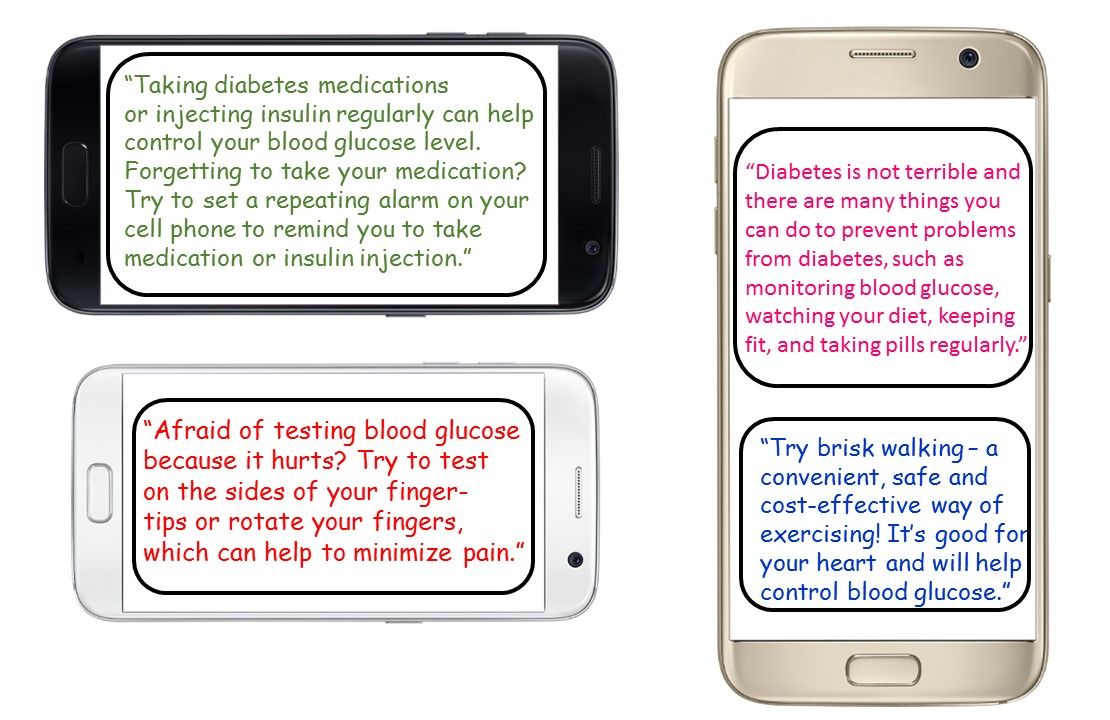- Clinical Technology
- Adult Immunization
- Hepatology
- Pediatric Immunization
- Screening
- Psychiatry
- Allergy
- Women's Health
- Cardiology
- Pediatrics
- Dermatology
- Endocrinology
- Pain Management
- Gastroenterology
- Infectious Disease
- Obesity Medicine
- Rheumatology
- Nephrology
- Neurology
- Pulmonology
Glycemic Control Improves with Motivational Texts
For people with type 2 diabetes, receiving motivational messages via mobile text was associated with reduced A1c vs patients who received usual care.
©Stanisic Vladimir/adobe.stock.com

Use of a text messaging program resulted in significantly improved glycemic control vs usual care in patients with coronary heart disease and diabetes mellitus, according to results from the CHAT-DM (Cardiovascular Health and Texting-Diabetes Mellitus) study.
The authors, led by Dr Xiqian Huo of the Fuwai Hospital, Beijing, China, note that even though the mechanism underlying the success of the intervention is not fully understood, the results suggest that “a simple, culturally sensitive mobile text messaging program may provide an effective and feasible way to improve disease self-management."
CHAT-DM was a multicenter randomized trial carried out in China that included 502 patients from 34 hospitals.
Study groupsIntervention (n=251) received 6 text messages/wk for 6 months plus usual care. Messages were culturally tailored and offered education and motivational information on glucose monitoring, blood pressure control, medication adherence, physical activity, and lifestyle suggestion son diet and foot care (sample messages, below).
Control (n=251) received usual care plus 2 "thank you" messages/month.
- Thank you for participating in our study!
- We appreciate your participation in this study. Please let us know when you change [your] phone number.
Primary outcome: change in A1c from baseline to 6 months.
Secondary outcomes: change in proportion of patients achieving A1c <7%; change in fasting blood glucose, systolic blood pressure, LDL (low-density lipoprotein) cholesterol, body mass index, and physical activity from baseline to 6 months.
The end points were assessed using analyses of covariance. The follow-up rate was 99%.
Results
At 6 months, A1c was significantly lower in the intervention group vs the control group (6.7% versus 7.2%). On average, A1c was reduced by 0.2% in the intervention group and rose by 0.1% in the control group, for a difference of 0.3% between groups.
Significantly more participants in the intervention group achieved the A1c <7% target (69.3%) vs the control group (52.6%). The change in fasting blood glucose was larger in the intervention, compared to control, group (-0.5 versus 0.1 mmol/L, respectively).
There was no observed difference between groups in systolic blood pressure, low-density lipoprotein (LDL) cholesterol, body mass index, and self-reported physical activity. Nearly all participants (97%) found the text messages useful, readable, and an appropriate method of contact.s
Dr Huo noted that sending text messages to patients in the intervention group with low baseline A1c was safe, ie, did not result in further reduction in blood sugar levels or hypoglycemia.
She concluded: “This study has important public health implications since patients with coronary heart disease and diabetes are at high risk for diabetes-related complications and death; achieving glycaemic control is a central pillar of high-quality care. Further investigation is needed, but this non-pharmacological intervention could serve as a powerful tool to transform worldwide delivery of health services and improve health across diverse populations.”
The study was presented at the ESC Congress 2019 and simultaneously published online in Circulation: Cardiovascular Quality and Outcomes.
